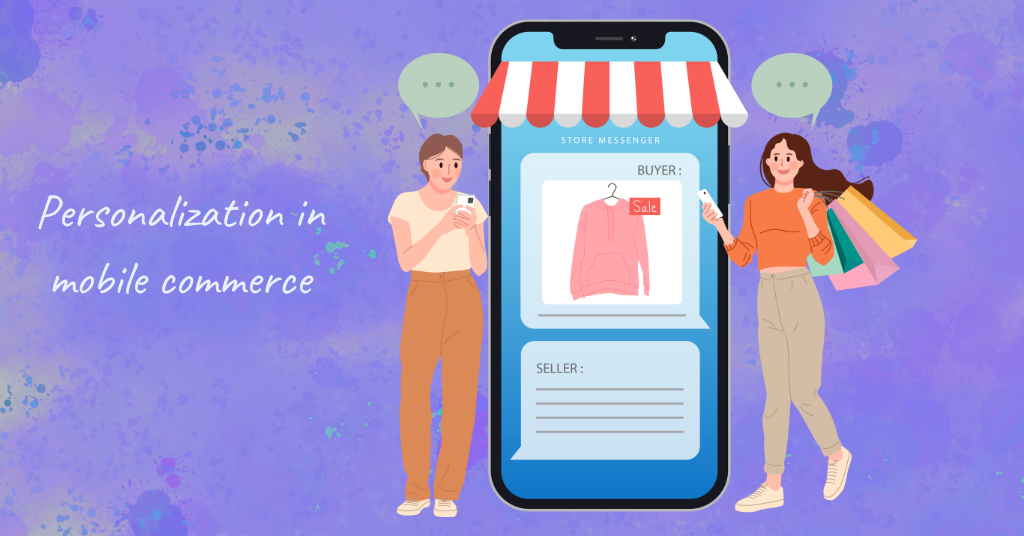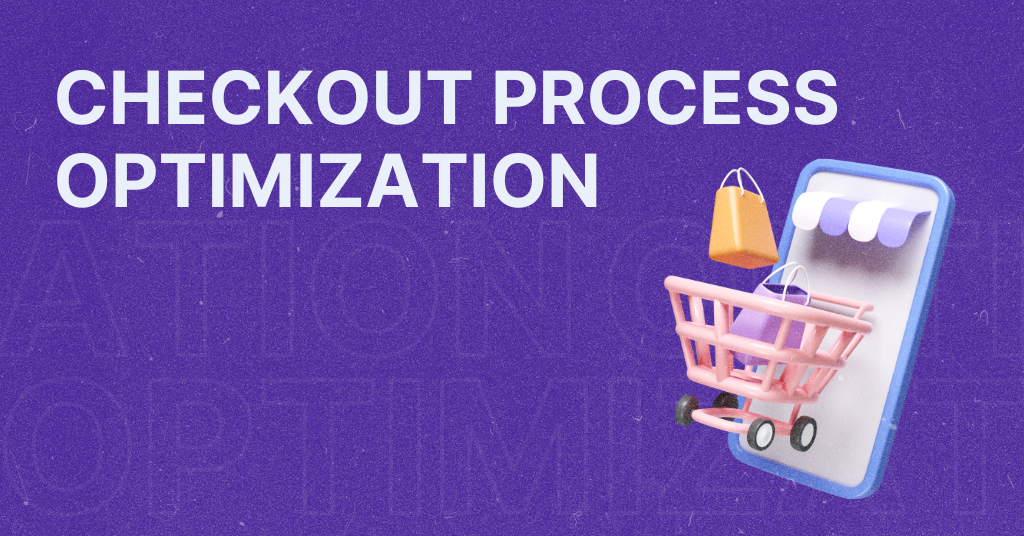
Personalization in mobile commerce: tailoring the shopping experience
The rise of mobile commerce (m-commerce) has revolutionized the way people shop. Mobile devices have become an integral part of consumers’ lives, providing them with a convenient and seamless shopping experience on the go. With the growing popularity of mobile apps and responsive websites, businesses are now presented with a unique opportunity to enhance their customer engagement through personalization. In this blog post, we will explore the significance of personalization in mobile commerce and its impact on both customers and businesses.
Understanding the power of personalization
The digital age has brought about a data-rich environment, enabling businesses to gather vast amounts of information about their customers. Personalization allows companies to transform this data into actionable insights, delivering relevant and engaging content to users. This not only enhances the shopping experience but also builds a deeper connection between the brand and the customer.
Customer-centric approach
Personalization places the customer at the center of the shopping journey. By understanding their preferences, shopping habits, and past interactions, businesses can cater to individual needs and deliver personalized product recommendations, offers, and promotions.
Here are some key aspects of a customer-centric approach in mobile commerce:
1. Understanding customer needs: To implement a customer-centric approach, businesses must invest in understanding their target audience thoroughly. This involves conducting market research, gathering customer feedback, and analyzing data to identify trends and patterns in customer behavior.
2. Building comprehensive customer profiles: Creating detailed customer profiles is essential for personalization. By collecting data on customer demographics, shopping habits, preferences, and past interactions, businesses can develop a clear picture of their customers’ personas.
3. Personalized product recommendations: Utilizing the data collected, businesses can provide personalized product recommendations to customers. These recommendations are based on the customer’s browsing and purchase history, as well as similar users’ preferences. Personalized recommendations not only increase the chances of conversion but also enhance the overall shopping experience.
4. Tailored communication: Communication is a vital aspect of the customer-centric approach. Businesses can use customer data to tailor messages, offers, and promotions to individual customers, making them feel valued and engaged with the brand.
5. Responsive customer support: Quick and efficient customer support is crucial in mobile commerce. Businesses must be responsive to customer inquiries and complaints, resolving issues promptly to build trust and loyalty.
6. Continuous improvement: A customer-centric approach requires a commitment to continuous improvement. Businesses must consistently monitor customer feedback, analyze data, and adapt their strategies to meet changing customer demands and preferences.
Improved user experience
Customizing the shopping experience based on user preferences and behavior streamlines the browsing and purchasing process. This reduces the time customers spend searching for products and enhances user satisfaction, leading to increased conversion rates.
Enhanced engagement
Personalized content, such as product recommendations, relevant ads, and personalized messages, captures users’ attention and keeps them engaged with the brand, fostering a lasting relationship.
Building brand loyalty
Tailoring the shopping experience creates a sense of exclusivity, making customers feel valued and appreciated. This, in turn, fosters brand loyalty and encourages repeat purchases.
Upselling and cross-selling opportunities
By understanding customers’ purchase history, preferences, and browsing habits, businesses can effectively offer upselling and cross-selling opportunities, increasing the average order value.
Reducing cart abandonment
Personalized reminders and incentives can be sent to customers who have abandoned their shopping carts, encouraging them to complete their purchase.
Key personalization strategies for mobile commerce
In the world of mobile commerce, unlocking the full potential of personalization hinges on implementing a strategic array of techniques tailored to individual users; these key personalization strategies are paramount to crafting a superior and customized shopping experience.
User profiling and data collection
User profiling and data collection are fundamental components of a customer-centric approach in mobile commerce. To create accurate and comprehensive customer profiles, businesses employ various methods to gather valuable data. These methods may include customer registration on mobile apps or websites, tracking user interactions through cookies and other tracking technologies, integrating social media data for insights, and analyzing user behavior within the mobile commerce platform.
By combining data from multiple sources, businesses can gain a deeper understanding of their customers’ preferences, shopping habits, and interests. This rich dataset enables them to create highly targeted marketing campaigns, personalized product recommendations, and relevant offers, ensuring that each customer receives a tailored shopping experience that resonates with their unique needs and preferences. Moreover, data-driven user profiling allows businesses to continuously refine their strategies, adapt to changing customer behaviors, and maintain a competitive edge in the dynamic landscape of mobile commerce.
Behavioral tracking
Behavioral tracking is a pivotal personalization strategy in mobile commerce, enabling businesses to gain invaluable insights into how users interact with their platforms. By monitoring and analyzing user behavior, such as browsing patterns, product preferences, click-through rates, and time spent on specific pages, businesses can discern customers’ interests and intentions.
This data-driven approach empowers companies to proactively anticipate customer needs, deliver highly relevant content, and offer personalized product recommendations, elevating the overall shopping experience and fostering long-term customer loyalty. However, it is crucial for businesses to strike a balance between utilizing behavioral tracking for personalization and respecting user privacy, ensuring transparency and providing opt-out options when necessary.
Predictive analytics
Predictive analytics is a cutting-edge technology that takes personalization in mobile commerce to the next level. By leveraging sophisticated algorithms and machine learning models, businesses can anticipate customer behavior and preferences with remarkable accuracy. This forward-looking approach enables real-time decision-making, allowing companies to dynamically adjust their offerings and promotions based on predictive insights.
Through predictive analytics, mobile commerce platforms can automatically recommend products or services that align with individual customers’ future needs, even before the customers express those preferences explicitly. Moreover, businesses can identify potential churn risks and intervene with personalized retention strategies, preventing customer attrition and maximizing customer lifetime value.
As predictive analytics continues to evolve and integrate with other personalization strategies, it holds the potential to revolutionize the mobile commerce landscape, creating an increasingly seamless and hyper-personalized shopping experience for customers while empowering businesses with data-driven strategies for growth and success.
Location-based personalization
Location-based personalization is a powerful strategy that leverages geolocation data to enhance the mobile commerce experience. By using GPS technology and other location tracking methods, businesses can precisely determine a customer’s physical location. This information opens up a world of opportunities to deliver highly relevant and contextually tailored content.
For instance, mobile commerce platforms can provide location-specific deals, promotions, or discounts to customers based on their proximity to a physical store or a specific geographic area. Additionally, businesses can offer localized information, such as store hours, stock availability, and nearby pickup options, to facilitate a seamless and convenient shopping journey.
Location-based personalization also enables geo-targeted advertising, allowing businesses to deliver targeted ads to customers when they are most likely to engage. For instance, a restaurant can send a timely offer for a lunch special to users located near their establishment during lunch hours, maximizing the chances of conversion.
However, it’s essential for businesses to handle location data responsibly and prioritize user privacy. Providing clear consent options and transparent data usage policies is crucial to building trust with customers and ensuring that they feel comfortable sharing their location information.
Push notifications and in-app messaging
Push notifications and in-app messaging are indispensable tools for mobile commerce personalization, enabling businesses to deliver timely and targeted messages directly to users’ mobile devices.
Push notifications serve as proactive alerts, notifying customers about exclusive offers, limited-time promotions, order updates, or abandoned cart reminders. The ability to send these real-time messages ensures that customers stay engaged with the brand and do not miss out on time-sensitive opportunities.
In-app messaging takes personalization a step further by delivering contextual messages while users are actively engaged with the mobile commerce app. Businesses can use in-app messaging to provide personalized product recommendations, offer assistance through chat support, or guide customers through the purchasing process in a highly personalized manner.
When utilizing push notifications and in-app messaging, it is crucial for businesses to strike a balance between frequency and relevance. Bombarding users with irrelevant or excessive messages can lead to app fatigue and potential opt-outs. Hence, employing user behavior data and preferences is vital to deliver personalized and valuable messages that enrich the customer experience and foster long-term engagement and loyalty.
Personalized loyalty programs
Personalized loyalty programs are a key element of mobile commerce personalization, designed to reward and retain valuable customers while nurturing a deeper brand connection. Rather than offering generic rewards, these programs use customer data to tailor incentives that cater to individual preferences and shopping behaviors.
Read more about boosting customer loyalty through mobile apps.
Personalized loyalty programs can take various forms, such as tiered reward systems, exclusive discounts on frequently purchased items, personalized birthday gifts, or early access to new products or sales. The ability to surprise and delight customers with rewards that align with their tastes and preferences fosters a sense of exclusivity and appreciation, reinforcing brand loyalty and encouraging repeat purchases.
Also, with the mobile commerce platform acting as a central hub for these loyalty programs, businesses can easily track and analyze customer engagement, allowing them to continuously optimize the program to meet customers’ evolving needs and preferences. Personalized loyalty programs serve as a powerful retention strategy in mobile commerce, solidifying the relationship between customers and brands and fostering a loyal customer base that acts as brand advocates, driving word-of-mouth referrals and contributing to sustainable business growth.
The impact on businesses
The impact of implementing personalization strategies in mobile commerce significantly influences businesses’ growth, competitiveness, and overall success.
Here is how it can benefit your business:
1. Increased customer retention and loyalty: Personalization nurtures a sense of loyalty among customers, leading to higher retention rates and reduced customer churn.
2. Improved conversion rates: The relevance of personalized content and recommendations increases the likelihood of conversion, driving higher sales and revenue.
3. Enhanced customer insights: Personalization generates valuable data insights, helping businesses understand their target audience better and make informed decisions.
4. Competitive advantage: Embracing personalization sets businesses apart from competitors and positions them as customer-centric leaders in their industry.
5. Positive brand perception: Customers perceive brands that personalize their shopping experience as attentive, trustworthy, and invested in meeting their needs.
The impact on customers
Similarly to its benefits for businesses, personalization in mobile commerce benefits the customers, and here is how:
1. Enhanced shopping experience: Customers enjoy a seamless and personalized shopping journey, saving time and effort in finding products that match their preferences.
2. Improved product discovery: Personalized product recommendations introduce customers to new items they might have otherwise missed, expanding their shopping choices.
3. Reduced information overload: With personalization, customers are presented with content that aligns with their interests, eliminating irrelevant and overwhelming information.
4. Increased customer satisfaction: Meeting customers’ individual needs and preferences leads to higher satisfaction levels, fostering brand loyalty and advocacy.
Overall importance of personalization in mobile commerce
Personalization in mobile commerce is a game-changer for both businesses and customers alike. By tailoring the shopping experience to individual preferences and needs, businesses can enhance customer engagement, drive loyalty, and ultimately boost sales and revenue. Customers, on the other hand, benefit from a seamless and personalized shopping journey, discovering relevant products and enjoying a higher level of satisfaction with the brand.
As technology continues to advance and data-driven insights become more sophisticated, the role of personalization in mobile commerce will only continue to grow, shaping the future of e-commerce and redefining the way we shop on our mobile devices. Embracing personalization is not just a trend; it’s a strategic imperative for businesses that want to grow their mobile commerce.
Let’s book a 30-min mobile strategy session and give your shop a boost.
Let’s book a 30-min mobile strategy session and give your shop a boost.


